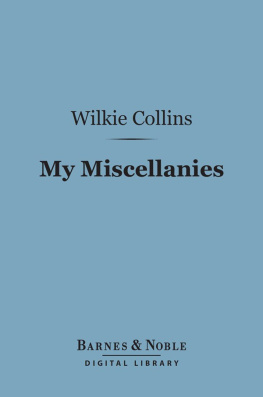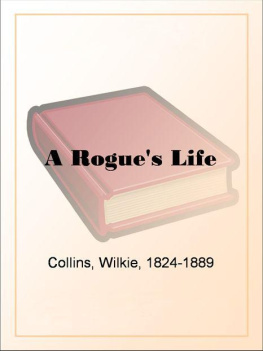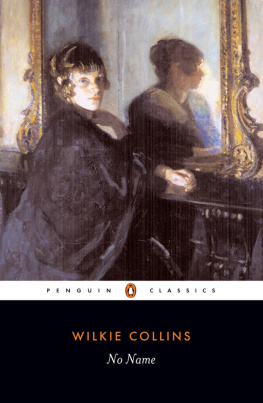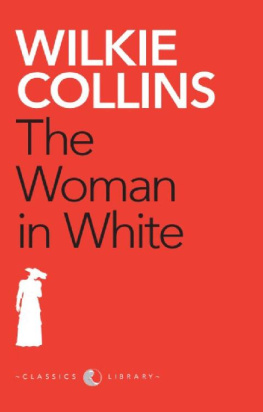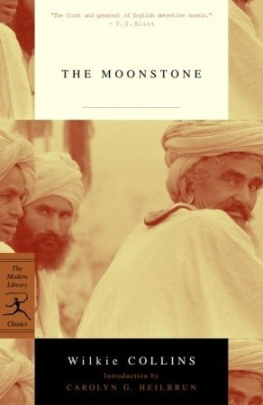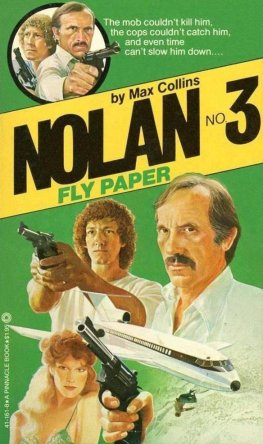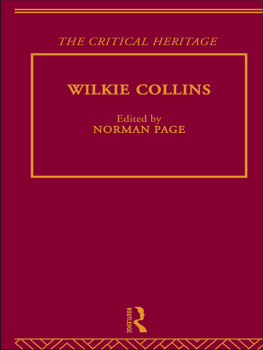Wilkie Collins - Little Novels
Here you can read online Wilkie Collins - Little Novels full text of the book (entire story) in english for free. Download pdf and epub, get meaning, cover and reviews about this ebook. year: 1999, genre: Prose. Description of the work, (preface) as well as reviews are available. Best literature library LitArk.com created for fans of good reading and offers a wide selection of genres:
Romance novel
Science fiction
Adventure
Detective
Science
History
Home and family
Prose
Art
Politics
Computer
Non-fiction
Religion
Business
Children
Humor
Choose a favorite category and find really read worthwhile books. Enjoy immersion in the world of imagination, feel the emotions of the characters or learn something new for yourself, make an fascinating discovery.

- Book:Little Novels
- Author:
- Genre:
- Year:1999
- Rating:3 / 5
- Favourites:Add to favourites
- Your mark:
- 60
- 1
- 2
- 3
- 4
- 5
Little Novels: summary, description and annotation
We offer to read an annotation, description, summary or preface (depends on what the author of the book "Little Novels" wrote himself). If you haven't found the necessary information about the book — write in the comments, we will try to find it.
Little Novels — read online for free the complete book (whole text) full work
Below is the text of the book, divided by pages. System saving the place of the last page read, allows you to conveniently read the book "Little Novels" online for free, without having to search again every time where you left off. Put a bookmark, and you can go to the page where you finished reading at any time.
Font size:
Interval:
Bookmark:
LITTLE NOVELS
By Wilkie Collins
MRS. ZANT AND THE GHOST.
I.
THE course of this narrative describes the return of a disembodied spirit to earth, and leads the reader on new and strange ground.
Not in the obscurity of midnight, but in the searching light of day, did the supernatural influence assert itself. Neither revealed by a vision, nor announced by a voice, it reached mortal knowledge through the sense which is least easily self-deceived: the sense that feels.
The record of this event will of necessity produce conflicting impressions. It will raise, in some minds, the doubt which reason asserts; it will invigorate, in other minds, the hope which faith justifies; and it will leave the terrible question of the destinies of man, where centuries of vain investigation have left itin the dark.
Having only undertaken in the present narrative to lead the way along a succession of events, the writer declines to follow modern examples by thrusting himself and his opinions on the public view. He returns to the shadow from which he has emerged, and leaves the opposing forces of incredulity and belief to fight the old battle over again, on the old ground.
II.
THE events happened soon after the first thirty years of the present century had come to an end.
On a fine morning, early in the month of April, a gentleman of middle age (named Rayburn) took his little daughter Lucy out for a walk in the woodland pleasure-ground of Western London, called Kensington Gardens.
The few friends whom he possessed reported of Mr. Rayburn (not unkindly) that he was a reserved and solitary man. He might have been more accurately described as a widower devoted to his only surviving child. Although he was not more than forty years of age, the one pleasure which made life enjoyable to Lucys father was offered by Lucy herself.
Playing with her ball, the child ran on to the southern limit of the Gardens, at that part of it which still remains nearest to the old Palace of Kensington. Observing close at hand one of those spacious covered seats, called in England alcoves, Mr. Rayburn was reminded that he had the mornings newspaper in his pocket, and that he might do well to rest and read. At that early hour the place was a solitude.
Go on playing, my dear, he said; but take care to keep where I can see you.
Lucy tossed up her ball; and Lucys father opened his newspaper. He had not been reading for more than ten minutes, when he felt a familiar little hand laid on his knee.
Tired of playing? he inquiredwith his eyes still on the newspaper.
Im frightened, papa.
He looked up directly. The childs pale face startled him. He took her on his knee and kissed her.
You oughtnt to be frightened, Lucy, when I am with you, he said, gently. What is it? He looked out of the alcove as he spoke, and saw a little dog among the trees. Is it the dog? he asked.
Lucy answered:
Its not the dogits the lady.
The lady was not visible from the alcove.
Has she said anything to you? Mr. Rayburn inquired.
No.
What has she done to frighten you?
The child put her arms round her fathers neck.
Whisper, papa, she said; Im afraid of her hearing us. I think shes mad.
Why do you think so, Lucy?
She came near to me. I thought she was going to say something. She seemed to be ill.
Well? And what then?
She looked at me.
There, Lucy found herself at a loss how to express what she had to say nextand took refuge in silence.
Nothing very wonderful, so far, her father suggested.
Yes, papabut she didnt seem to see me when she looked.
Well, and what happened then?
The lady was frightenedand that frightened me. I think, the child repeated positively, shes mad.
It occurred to Mr. Rayburn that the lady might be blind. He rose at once to set the doubt at rest.
Wait here, he said, and Ill come back to you.
But Lucy clung to him with both hands; Lucy declared that she was afraid to be by herself. They left the alcove together.
The new point of view at once revealed the stranger, leaning against the trunk of a tree. She was dressed in the deep mourning of a widow. The pallor of her face, the glassy stare in her eyes, more than accounted for the childs terrorit excused the alarming conclusion at which she had arrived.
Go nearer to her, Lucy whispered.
They advanced a few steps. It was now easy to see that the lady was young, and wasted by illnessbut (arriving at a doubtful conclusion perhaps under the present circumstances) apparently possessed of rare personal attractions in happier days. As the father and daughter advanced a little, she discovered them. After some hesitation, she left the tree; approached with an evident intention of speaking; and suddenly paused. A change to astonishment and fear animated her vacant eyes. If it had not been plain before, it was now beyond all doubt that she was not a poor blind creature, deserted and helpless. At the same time, the expression of her face was not easy to understand. She could hardly have looked more amazed and bewildered, if the two strangers who were observing her had suddenly vanished from the place in which they stood.
Mr. Rayburn spoke to her with the utmost kindness of voice and manner.
I am afraid you are not well, he said. Is there anything that I can do
The next words were suspended on his lips. It was impossible to realize such a state of things; but the strange impression that she had already produced on him was now confirmed. If he could believe his senses, her face did certainly tell him that he was invisible and inaudible to the woman whom he had just addressed! She moved slowly away with a heavy sigh, like a person disappointed and distressed. Following her with his eyes, he saw the dog once morea little smooth-coated terrier of the ordinary English breed. The dog showed none of the restless activity of his race. With his head down and his tail depressed, he crouched like a creature paralyzed by fear. His mistress roused him by a call. He followed her listlessly as she turned away.
After walking a few paces only, she suddenly stood still.
Mr. Rayburn heard her talking to herself.
Did I feel it again? she said, as if perplexed by some doubt that awed or grieved her. After a while her arms rose slowly, and opened with a gentle caressing actionan embrace strangely offered to the empty air! No, she said to herself, sadly, after waiting a moment. More perhaps when to-morrow comesno more to-day. She looked up at the clear blue sky. The beautiful sunlight! the merciful sunlight! she murmured. I should have died if it had happened in the dark.
Once more she called to the dog; and once more she walked slowly away.
Is she going home, papa? the child asked.
We will try and find out, the father answered.
He was by this time convinced that the poor creature was in no condition to be permitted to go out without some one to take care of her. From motives of humanity, he was resolved on making the attempt to communicate with her friends.
III.
THE lady left the Gardens by the nearest gate; stopping to lower her veil before she turned into the busy thoroughfare which leads to Kensington. Advancing a little way along the High Street, she entered a house of respectable appearance, with a card in one of the windows which announced that apartments were to let.
Mr. Rayburn waited a minutethen knocked at the door, and asked if he could see the mistress of the house. The servant showed him into a room on the ground floor, neatly but scantily furnished. One little white object varied the grim brown monotony of the empty table. It was a visiting-card.
With a childs unceremonious curiosity Lucy pounced on the card, and spelled the name, letter by letter: Z, A, N, T, she repeated. What does that mean?
Font size:
Interval:
Bookmark:
Similar books «Little Novels»
Look at similar books to Little Novels. We have selected literature similar in name and meaning in the hope of providing readers with more options to find new, interesting, not yet read works.
Discussion, reviews of the book Little Novels and just readers' own opinions. Leave your comments, write what you think about the work, its meaning or the main characters. Specify what exactly you liked and what you didn't like, and why you think so.

